Uighur woman living in France speaks out about alleged Chinese ‘re-education’ camp horrors
Gulbahar Haitiwaji spent almost three years trapped in Xinjiang.
PARIS and LONDON -- Gulbahar Haitiwaji says when she was summoned back to China to sign documents relating to her retirement as an oil company engineer in November 2016, she could not have possibly known the fate that awaited her. A member of Xinjiang province’s Uighur ethnic minority, she had left the country for France 10 years earlier, but still possessed a Chinese passport.
After she was unable to grant one of her relatives power of attorney to handle the matter, she traveled to the country at the end of the month. She says she wasn't allowed to leave the country -- or see her husband, a fellow Uighur who had fled Xinjiang with whom she has two children back in France -- for the next three years.
Haitiwaji says she was lured back to the country under false pretenses and claims she was accused of being a terrorist and sentenced to seven years of detention in one of Xinjiang’s notorious “re-education camps.”
Now 54, Haitiwaji still wonders exactly why she was targeted. During police interrogations, she says she was shown a photo of her daughter at a protest by Uighurs in exile in Paris. But at her trial, Haitiwaji says she was asked about her daughter's activism, her own decision to leave China for France, and her choice to destroy the hukou -- a kind of household registration -- of her daughters and her husband.
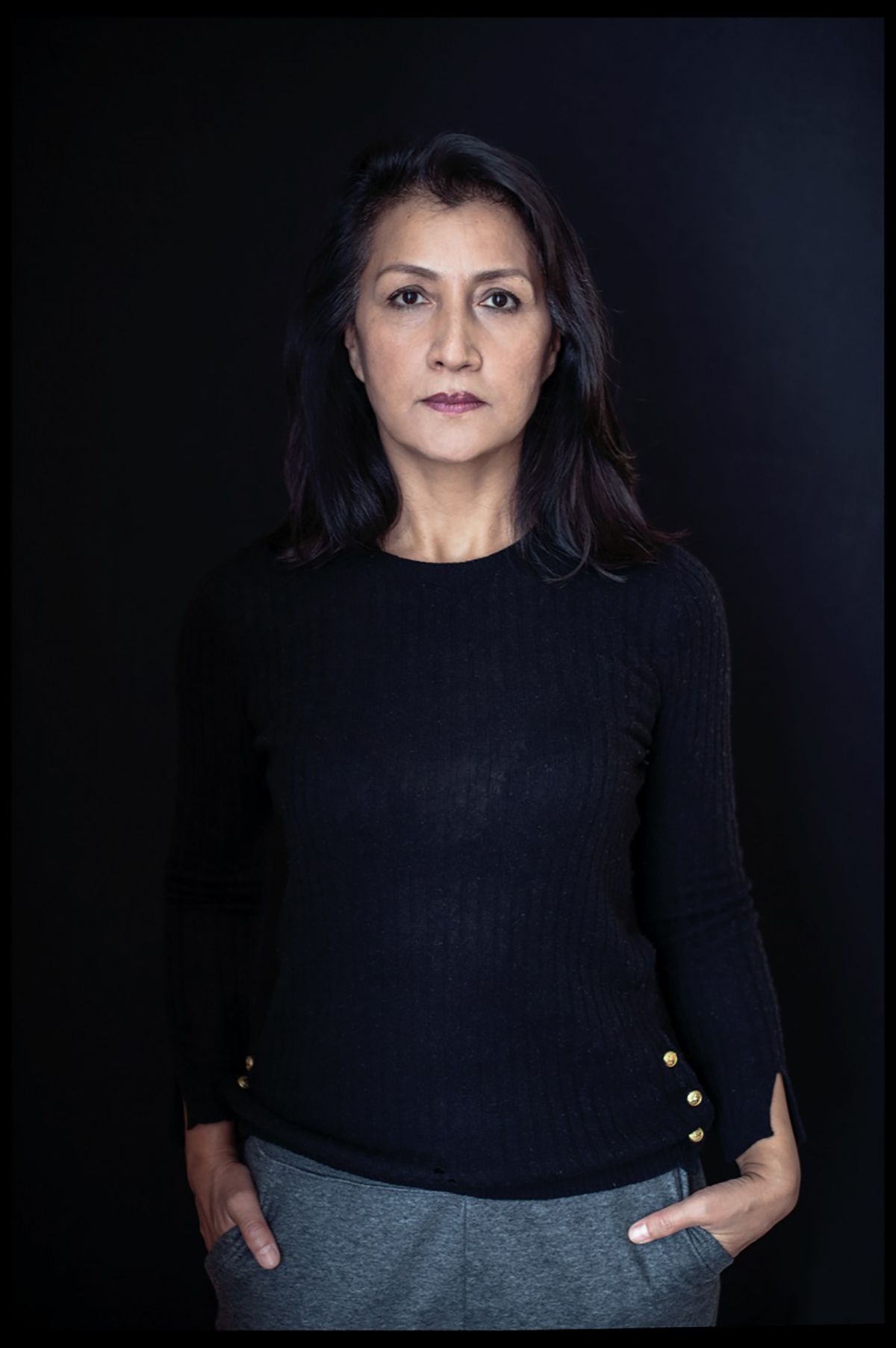
“There were no lawyers, just our guards who stayed beside us without speaking,” Haitiwaji told ABC News recently. “It lasted less than 10 minutes. They listed my 'crimes': I was accused of being a terrorist.”
Haitiwaji's first-hand account is what human right groups say over 1 million Uighurs -- as well as ethnic Kazakhs and other Muslim minorities in the western province in Xinjiang have gone through in recent years -- a program of “permanent brainwashing” and “forced cultural assimilation,” she said.
Now free and back home in France, Haitiwaji has written a book with the French journalist Rozenn Morgat about her experiences entitled "Rescapée du Goulag Chinois" (Survivor of the Chinese Gulag), an English translation of which is to be published in the U.S. by the end of this year.
In the French version of the book, obtained by ABC news, Haitiwaji describes a horrific daily existence of interrogations, forced confessions, violence, malnutrition and brainwashing. Her account of life in a "re-education" camp in the district of Baijiantan near the oil-rich city of Karamay tells of long days in classrooms without windows, under a regimen of daily Communist Party propaganda, as well as recurring physical abuse. Inside, she wrote she was taught to repeat daily good wishes for President Xi Jinping and learn a glorified version of China's history, in order to prove her “re-education” and escape the life-threatening qualification of "terrorist,” which would mean spending an even longer time in the camp.
Haitiwaji recounts physical exercise akin to military training and to the point of exhaustion. "Sometimes, some pass out,” she wrote in the book. “If a prisoner remains unconscious despite the cries of the guards, one of them comes to pick her up unceremoniously with a pair of slaps.”
Hoping to be released early, Haitiwaji says she opted for the strategy of the "diligent student" and "model inmate." In the meantime, she turned to God and began praying throughout the day and doing yoga while hiding her prayers from surveillance cameras.
Her account is in line with more than a dozen Uighurs previously interviewed by ABC News, but the Chinese government, in a statement from its embassy in Paris, blasted her story as a fabrication, as they have with others. They did however admit that they arrested Haitiwaji and placed her in custody.
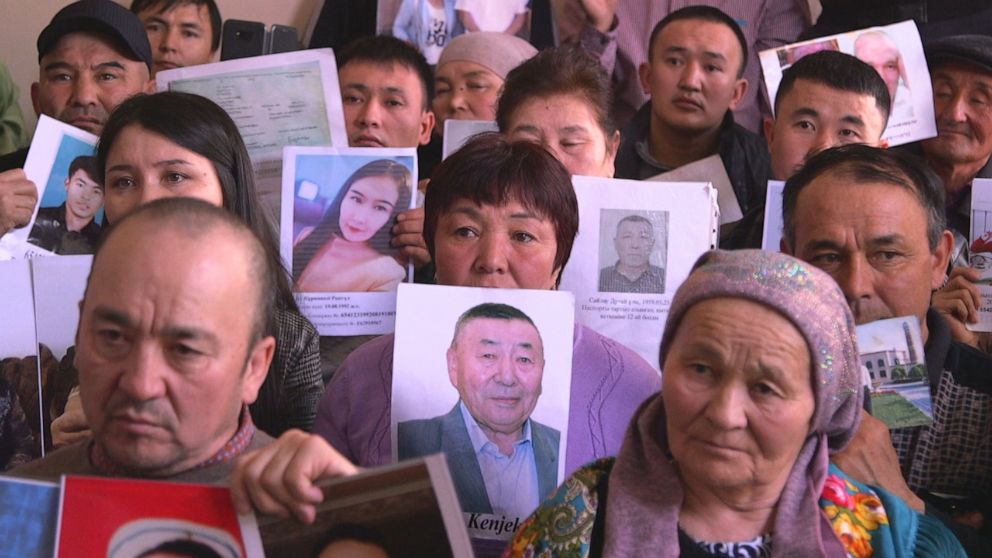
Some 385 're-education' camps in Xinjiang: Report
The Western region of Xinjiang is home to a myriad of ethnicities, most prominently Uighurs, who are linguistically and culturally distinct from the Han majority in China. Their main religion is Islam, and the language is a close relative to Turkish and not Mandarin.
Since the fall of the neighboring Soviet Union, some Uighurs' demands for more autonomy, fairer treatment, and their underlying friction with the influx of Han Chinese population resettling in the province have led to episodes of revolt and ethnic violence. Uighur anger boiled over in July 2009 when riots erupted in the regional capital of Urumqi, 197 died (mostly Han Chinese) and over 1,600 were wounded in revolts and attacks over several days, followed by a wave of arrests by the authorities.
In the following years, China was hit by a series of terrorist attacks including suicide car bombings in Urumqi and in front of Mao's portrait in Beijing's Tiananmen Square as well as a deadly knife attack at the Kunming Railway Station that killed 31 people. Chinese authorities blamed all these attacks on Uighurs indoctrinated by "foreign extremist thought" and Xi launched the "People's War on Terror" shortly after one Urumqi attack occurred during his visit to the city in 2014.
The region is a strategic place for Beijing, crucial to Xi’s ambitious "One Belt One Road" project that aimed to recreate the Silk Road for current times, according to experts. This level of control escalated over the years, culminating in reports of an unprecedented wave of repression since 2017, the year in which the first "re-education camps" reportedly appeared.
There are an estimated 13 million Uighur Muslims living in the province. Adrian Zenz, a senior fellow in China studies at the Victims of Communism Foundation, a non-profit that researches crimes in communist countries, who was in contact with Haitiwaji’s husband while she was in captivity, estimates that up to 1.8 million have gone through some form of extrajudicial internment.
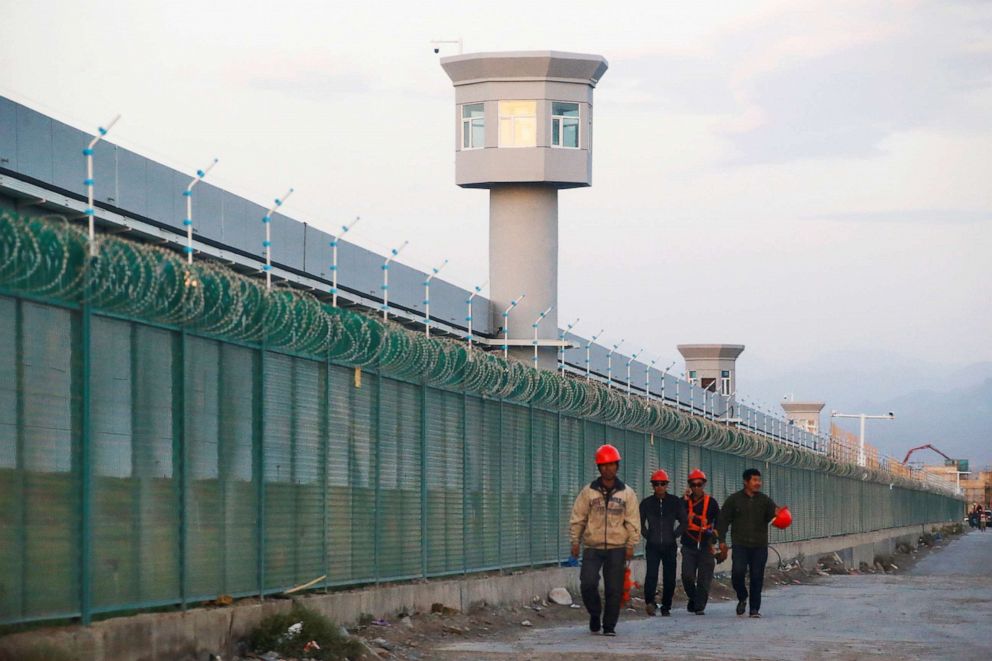
The Australian Institute of Strategic Studies says imagery shows evidence of at least 385 of such camps in Xinjiang, which the group says vary in terms of the severity of treatment handed down there. Some are “re-education centers,” where detainees go through a cultural program. Others are forced labor camps, according to Zenz, who has published numerous reports on the scale of the crackdown.
Chinese officials have repeatedly insisted that these "re-education centers" are voluntary and deny allegations of human rights abuses in the region. The Chinese have touted the success of their campaign saying they have not had single terrorist attack since 2015.
This week, Zenz produced a report which said that some laborers in Xinjiang are moved "to other regions and other provinces are part of a state-run scheme to forcibly uproot them, assimilate them and reduce their population density." Such a system could amount to crimes against humanity, the report said.
Outside of the camps, reports suggest that Uighurs and other minorities now live under a surveillance state, where cultural activities cannot take place without official permission amid a broader crackdown on their lives. Reports have also emerged of the forced sterilization of Uighur women to control the population.
'Dead inside': A first-hand account
While what Haitiwaji has recorded is a similar treatment as to what has been widely reported in international media in recent years, her first-hand testimony offers a rare personal account of what life is like in the camps.
In the book, Haitiwaji says she was chained to her bed for 20 days and that she had become so desensitized to the program that she felt “nothing.” One December night toward the end of her more than two-year detention she claims she was put into a truck, without being told where she was going, and while she feared she would be shot, her response was similarly passive. "By then, I was already dead inside," she said.
Early on, Haitiwaji's daughter convinced the French Foreign Ministry to plead for her release, as if she were a French citizen. The negotiations started and Haitiwaji's case was regularly mentioned at diplomatic meetings, as well as in the media. In March 2019, she says she went through another six days of interrogation in which she was again forced confessions and to say that her relations took part in an illegal organization of Uighurs in France led by a terrorist. After that, she was released and eventually flew back to France.
The Chinese Embassy in France released a statement saying that " Haitiwaji has long engaged in separatist and terrorist activities and is outright a separatist and a terrorist," who returned to Xinjiang in 2016 voluntarily and lived a "normal life" while there.
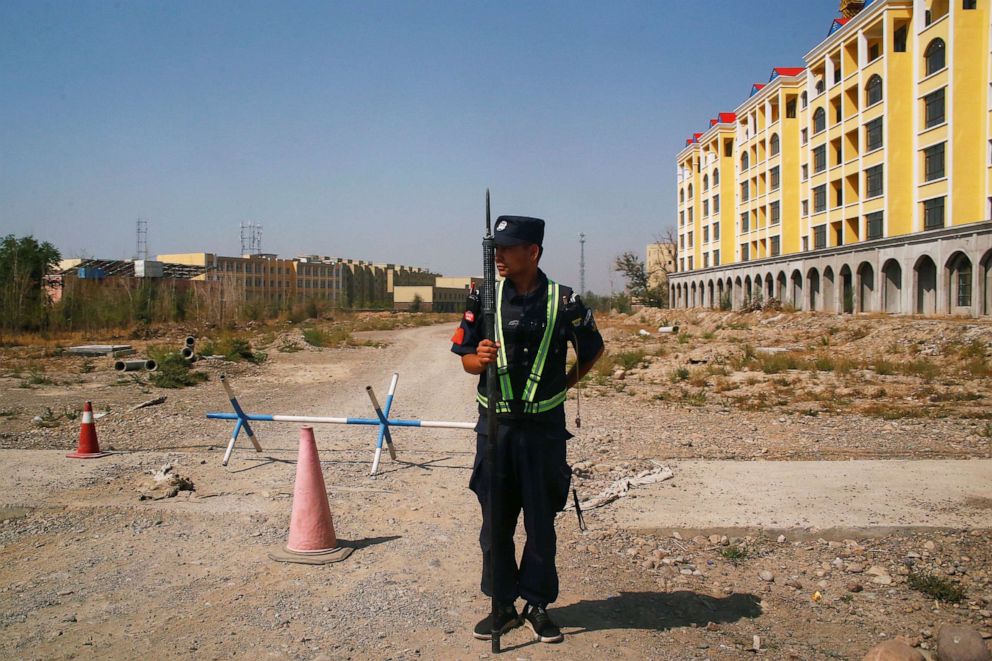
With dozens, if not hundreds of witness accounts now in the public domain regarding the camps in Xinjiang, the information about what is going on inside the secretive state is now fairly comprehensive, according to Zenz.
"About the mass internment, I think the information is quite complete now,” he told ABC News. “We have satellite evidence, we have the leaked files such as the China cables. They gave us a lot of detailed information about how these places work... it shows that it particularly targeted men and heads of households. So we have quite a bit of detail, really, both about the scope, and about the nature of the internment campaign."
The Chinese Foreign Ministry in recent months has taken an increasingly proactive approach in pushing back on these witness accounts, trying to sow doubt in the victims' claims.
Foreign Ministry spokesperson Wang Wenbin accused one witness on Feb. 23 of being "an "actress" for certain elements to slander and smear China."
Beijing has, however, reserved particular ire for Zenz accusing the scholar of using "abused data, distorted materials, made up cases" and even hoping that "there will be a day when Adrian Zenz and other flagrant slanderers are punished by justice."
France’s foreign minister says that France had "received testimonies and corroborating documents which show unjustifiable practices against the Uighurs and a large-scale institutionalized surveillance and repression system’."
'Ethnocide'
On its final day in office, the Trump administration said that China’s abuse of its Muslim minorities constituted “genocide” and “crimes against humanity.” The U.S. has banned the import of all cotton and tomato products from Xinjiang over fears they are produced by slave labor. But much of the world has been slow to criticize China in fear of economic retaliation, including Muslim-majority countries, Haitiwaji said.
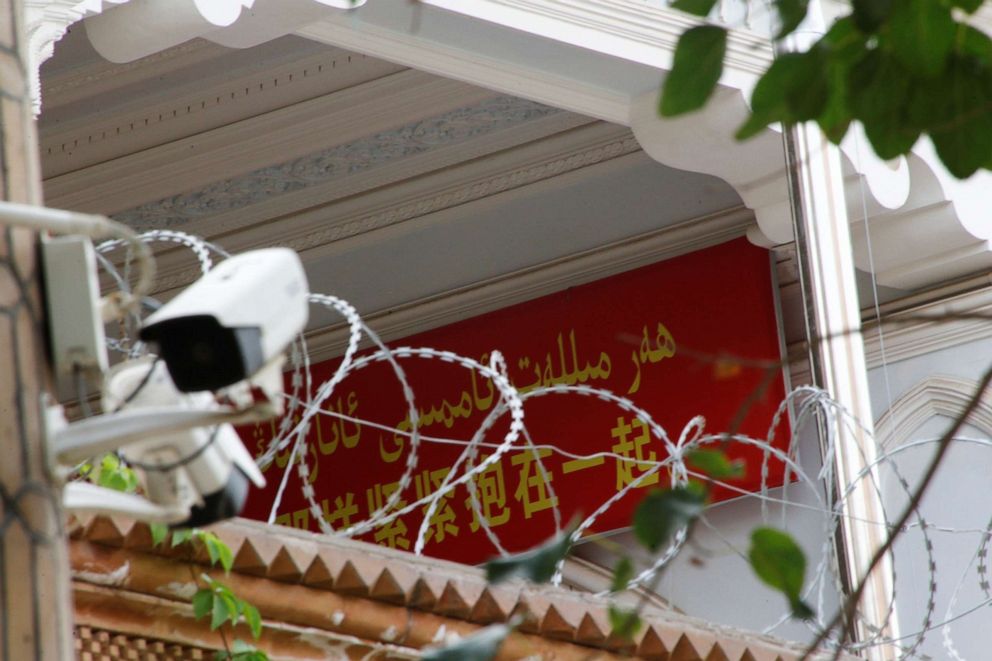
“The economic power of China is unfortunately taking the upper hand on human rights issues,” she told ABC News. “Even though I am happy to know that the name of Uighur is better known than before, I still hope for concrete actions and international pressure to close these camps.”
Whatever international pressure comes China’s way, however, it will be extremely difficult to change the country’s course, Zenz said.
"China is just incredibly determined to bring this to its logical conclusion," he said. "It's a form of ethnocide -- the killing of an ethnic group by killing its identity. Assimilating [and] forcibly eradicating its religion, separating parents from children and educating the young generation at boarding schools, eliminating the language, the culture... It's a long-term form of breaking up communities, breaking up families, and exerting long term control over people's lives, regardless whether they are inside the camps or outside."
For Haitiwaji, she says there is now a constant fear of what will happen to the rest of the family who still live there.
“I fear especially for my family remained in China who are not at all aware of the existence of the book,” she said. “But I still have to speak to bring out the truth. If my word can help close these camps, I will be satisfied.”
Additional reporting by ABC News' Karson Yiu




